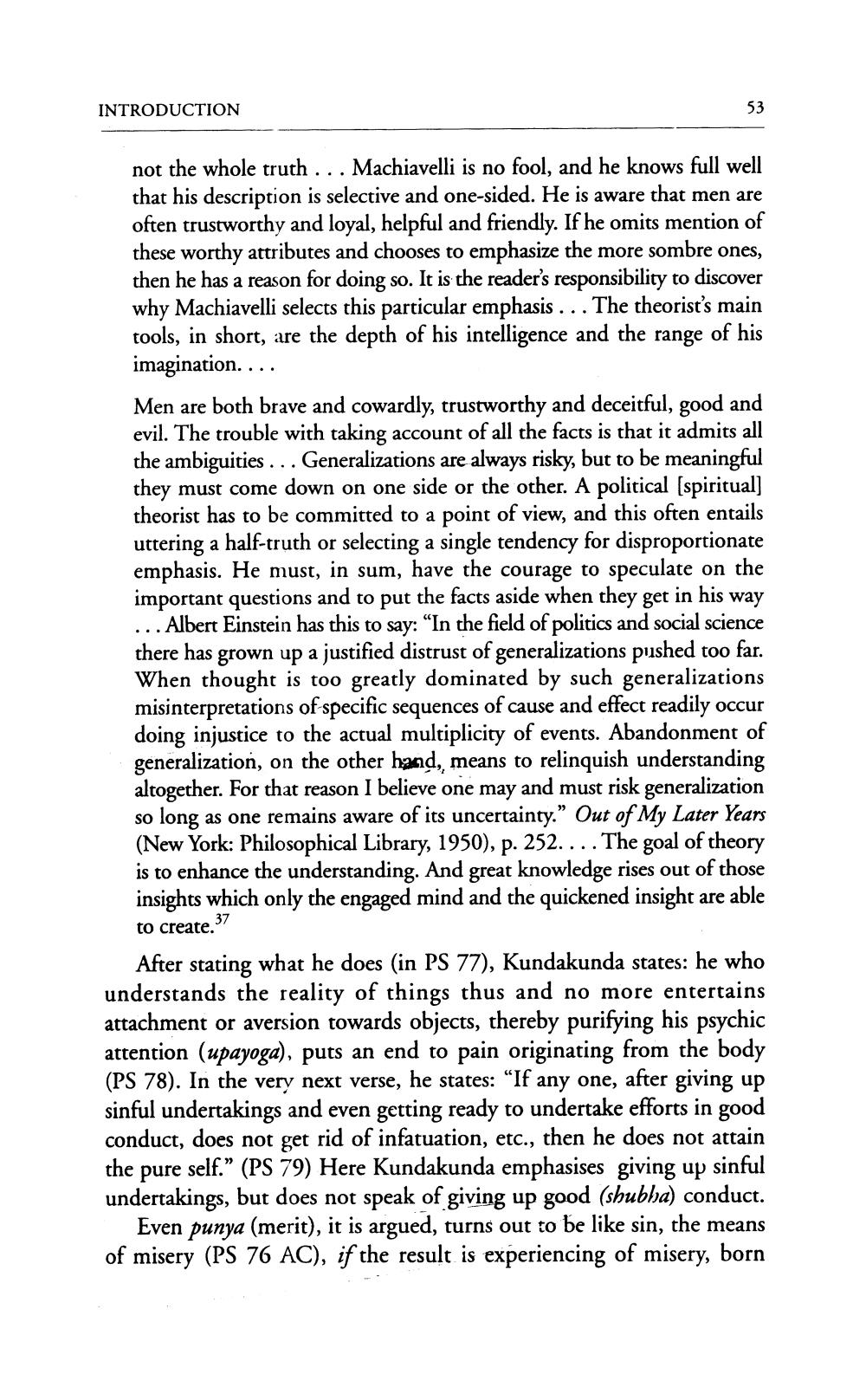________________
INTRODUCTION
53
not the whole truth ... Machiavelli is no fool, and he knows full well that his description is selective and one-sided. He is aware that men are often trustworthy and loyal, helpful and friendly. If he omits mention of these worthy attributes and chooses to emphasize the more sombre ones, then he has a reason for doing so. It is the reader's responsibility to discover why Machiavelli selects this particular emphasis ... The theorist's main tools, in short, are the depth of his intelligence and the range of his imagination. ... Men are both brave and cowardly, trustworthy and deceitful, good and evil. The trouble with taking account of all the facts is that it admits all the ambiguities ... Generalizations are always risky, but to be meaningful they must come down on one side or the other. A political (spiritual] theorist has to be committed to a point of view, and this often entails uttering a half-truth or selecting a single tendency for disproportionate emphasis. He must, in sum, have the courage to speculate on the important questions and to put the facts aside when they get in his way ... Albert Einstein has this to say: "In the field of politics and social science there has grown up a justified distrust of generalizations pushed too far. When thought is too greatly dominated by such generalizations misinterpretations of specific sequences of cause and effect readily occur doing injustice to the actual multiplicity of events. Abandonment of generalization, on the other hand, means to relinquish understanding altogether. For that reason I believe one may and must risk generalization so long as one remains aware of its uncertainty.” Out of My Later Years (New York: Philosophical Library, 1950), p. 252. ... The goal of theory is to enhance the understanding. And great knowledge rises out of those insights which only the engaged mind and the quickened insight are able to create. 37
After stating what he does (in PS 77), Kundakunda states: he who understands the reality of things thus and no more entertains attachment or aversion towards objects, thereby purifying his psychic attention (upayoga), puts an end to pain originating from the body (PS 78). In the very next verse, he states: “If any one, after giving up sinful undertakings and even getting ready to undertake efforts in good conduct, does not get rid of infatuation, etc., then he does not attain the pure self.” (PS 79) Here Kundakunda emphasises giving up sinful undertakings, but does not speak of giving up good (shubha) conduct.
Even punya (merit), it is argued, turns out to be like sin, the means of misery (PS 76 AC), if the result is experiencing of misery, born




